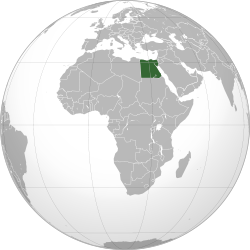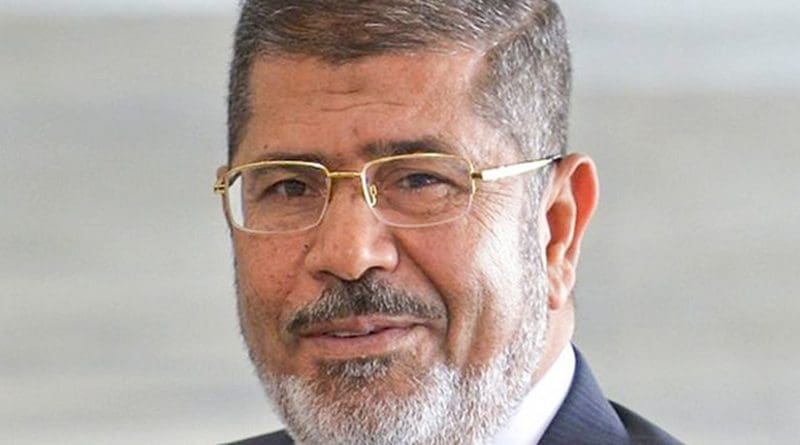Morsi Criticized As “New Pharaoh”
Egyptian President Mohamed Morsi decided Thursday to significantly strengthen his powers, in particular with regard to the judiciary system. He made these decisions in an announcement justified by the need to “defend the revolution.” The opposition has already called him “the new Pharaoh.”
“The President may take any decision or measure to protect the revolution”, said the spokesman of the presidency, Yasir Ali, reading a “constitutional declaration” on state television.

“The constitutional declarations, decisions and laws issued by the President are final and are not subject to appeal” until a new constitution is in place, he added.
These decisions are aimed at “cleansing institutions” and “destroying the infrastructure of the former regime,” he added in reference to the regime of President Hosni Mubarak, ousted in February 2011.
Morsi asked in this regard “new investigations and judgments” in cases of protesters deaths during the uprising last year, a move which constitutes a threat to some senior military or police officials and maybe Mubarak himself.
The announcement comes after a cease-fire between Israel and armed Palestinian groups in Gaza, for which Mr. Morsi has played an important role and widely praised by the international community.
An opponent to Morsi, Mohamed ElBaradei, former head of the International Atomic Energy Agency (IAEA) and Nobel Peace Prize winner has immediately accused Morsi of being the “new king.”
“Today, Morsi has usurped all power and proclaimed himself the new pharaoh of Egypt. A huge blow to the revolution which could have terrible consequences, “ElBaradei wrote on Twitter.
Morsi akso decided on Thursday to dismiss the Attorney General, Abdel Meguid Mahmoud, after he had failed to sack him last month and appointed another judge Talaat Ibrahim Abdallah, to replace him for a period of four years.
Mahmoud was appointed under President Hosni Mubarak.
Mr. Morsi also decided that no court could dissolve the committee which is drafting the future constitution, a target of much criticism from liberal and secular media and the Coptic Christian church, who claim it is dominated by Islamists.
The composition of the Constitutional Commission is currently subject to appeal before the Supreme Constitutional Court. Morsi has also decided to extend by two months the mandate of this commission.
“There are positive and negative consequenses” in the announcement, said Heba Morayef, the Cairo representative of Human Rights Watch. New investigations into the murders committed during the anti-Mubarak revolt “is a good decision” and the Attorney General inherited from the former regime “must go,” she said.

